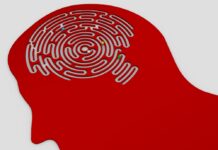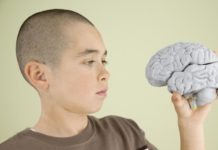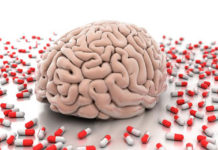Randomized Controlled Trial Confirms That Antipsychotics Damage the Brain
A new study published in JAMA Psychiatry connects antipsychotics with damage to the brain in multiple areas.
Long-term Outcomes Better for Those Who Stop Taking Antipsychotics
Research undermines the prolonged use of antipsychotics in schizophrenia treatment, suggesting improved social functioning and quality of life with discontinuation.
When Medication Changes More Than Symptoms: Antipsychotics’ Effect on Identity
Recent research reveals how antipsychotic medications can significantly impact users' identity and self-image, challenging existing clinical approaches.
Wunderink: Antipsychotics Can Be Tapered Safely Without Increasing Relapse Risk
Tapering antipsychotics slowly and with supported decision-making may improve care for patients with psychosis.
Antipsychotics Increase Risk of Dementia; New Research Illuminates Why
In JAMA psychiatry, researchers outline new theories connecting antipsychotic use in people with schizophrenia and increased dementia risk.
Antipsychotics Lead to Worse Outcomes in First-Episode Psychosis
Those who did not get antipsychotics in the first month were almost twice as likely to be in recovery after five years.
Case Studies Reveal Patient Empowerment Through Tapering Antipsychotics
A new study shows how different patients respond to tapering antipsychotic medication under expert guidance, highlighting personal empowerment and the complexities of withdrawal.
Adding Antipsychotics Worsens Outcomes in Psychotic Depression
Outcomes were worse for all, with young people on combination therapy twice as likely to experience rehospitalization or death by suicide than those on antidepressants alone.
A Short History of Tardive Dyskinesia: 65 Years of Drug-Induced Brain Damage That Rolls...
Psychiatry has long turned a blind eye to the full scope of harm associated with TD. New TD drugs "work" by further impairing brain function.
Do Antipsychotics Protect Against Early Death? A Review of the Evidence
Psychiatry is now claiming that research has shown that antipsychotics reduce mortality among the seriously mentally ill. A critical review of the literature reveals that this claim is best described as the the field's latest "delusion" about the merits of these drugs.
Study Links Prenatal Antipsychotic Exposure to Developmental Delays and ADHD
A comprehensive review indicates that children exposed to antipsychotics in the womb face an increased risk of ADHD and developmental delays.
Despite Safety Risks, Prescribers Receive Little Guidance of Monitoring Antipsychotic Clozapine
A new review finds a lack of available guidance on how to effectively monitor adverse effects of antipsychotic drug clozapine.
Study Highlights Difficulty of Antipsychotic Withdrawal
New research finds insomnia, anxiety, and depression are common symptoms of antipsychotic withdrawal, highlighting difficulties of discontinuation.
Recovery Rate Six Times Higher For Those Who Stop Antipsychotics Within Two Years
People with "serious mental illness" who stop taking antipsychotics are more likely to recover, even when accounting for baseline severity.
Psychiatry Defends Its Antipsychotics: A Case Study of Institutional Corruption
Jeffrey LIeberman and colleagues have published a paper in the American Journal of Psychiatry stating that there is no evidence that psychiatric drugs cause long-term harm, and that the evidence shows that these drugs provide a great benefit to patients. A close examination of their review reveals that it is a classic example of institutional corruption, which was meant to protect guild interests.
Contribution of Antipsychotics to Suicidality and Depression
Peter Lehmann reviews the contribution of antipsychotics to suicide and depression in schizophrenia in the current International Journal of Psychotherapy. Publications about the intrinsic effects of...
An FDA Whistleblower’s Documents: Commerce, Corruption, and Death
In 2008, a reviewer of psychiatric drugs at the FDA, Ron Kavanagh, complained to Congress that the FDA was approving a new antipsychotic that was ineffective and yet had adverse effects that increased the risk of death. Twelve years later, a review of the whistleblower documents reveal an FDA approval process that can lead to the marketing of drugs sure to harm public health.
The Rise of the Digital Asylum
The digital pill Abilify MyCite, which is now being introduced into the market, foretells of a future where such technology is used to monitor the behavior, location and "medication compliance" of a person 24 hours a day.
The Case Against Antipsychotics
This review of the scientific literature, stretching across six decades, makes the case that antipsychotics, over the long-term, do more harm than good. The drugs lower recovery rates and worsen functional outcomes over longer periods of time.
For People “At Risk for Psychosis,” Antipsychotics Associated with Worse Outcomes
Researchers studied whether antipsychotics could prevent transition to full psychosis and found that the drugs worsened outcomes.
Largest Survey of Antipsychotic Experiences Reveals Negative Results
A new survey exploring antipsychotic user experience finds that more than half of the participants report only negative experiences.
Researchers Warn of “Brain Atrophy” in Children Prescribed Antipsychotics
Researchers discuss the evidence that antipsychotic medications may cause brain atrophy in children, whose brains are still developing.
Vitamin B6 Effective in Reducing Antipsychotic Induced Akathisia
A recent RCT showed that vitamin B6 is as effective as propranolol for the treatment of akathisia.
Psychotropics During Pregnancy Raise Risk of Babies with Low Birth Weight, Hospitalizations
The use by mothers of any of four major classes of psychiatric medications during pregnancy significantly raises the risk that their babies will be born with low birth weights and will need to be hospitalized.
New Research Suggests Brain Abnormalities in ‘Schizophrenia’ May Result From Antipsychotics
Study finds that reduced cortical thickness and brain surface area associated with 'schizophrenia' may result from antipsychotic drug use.

































